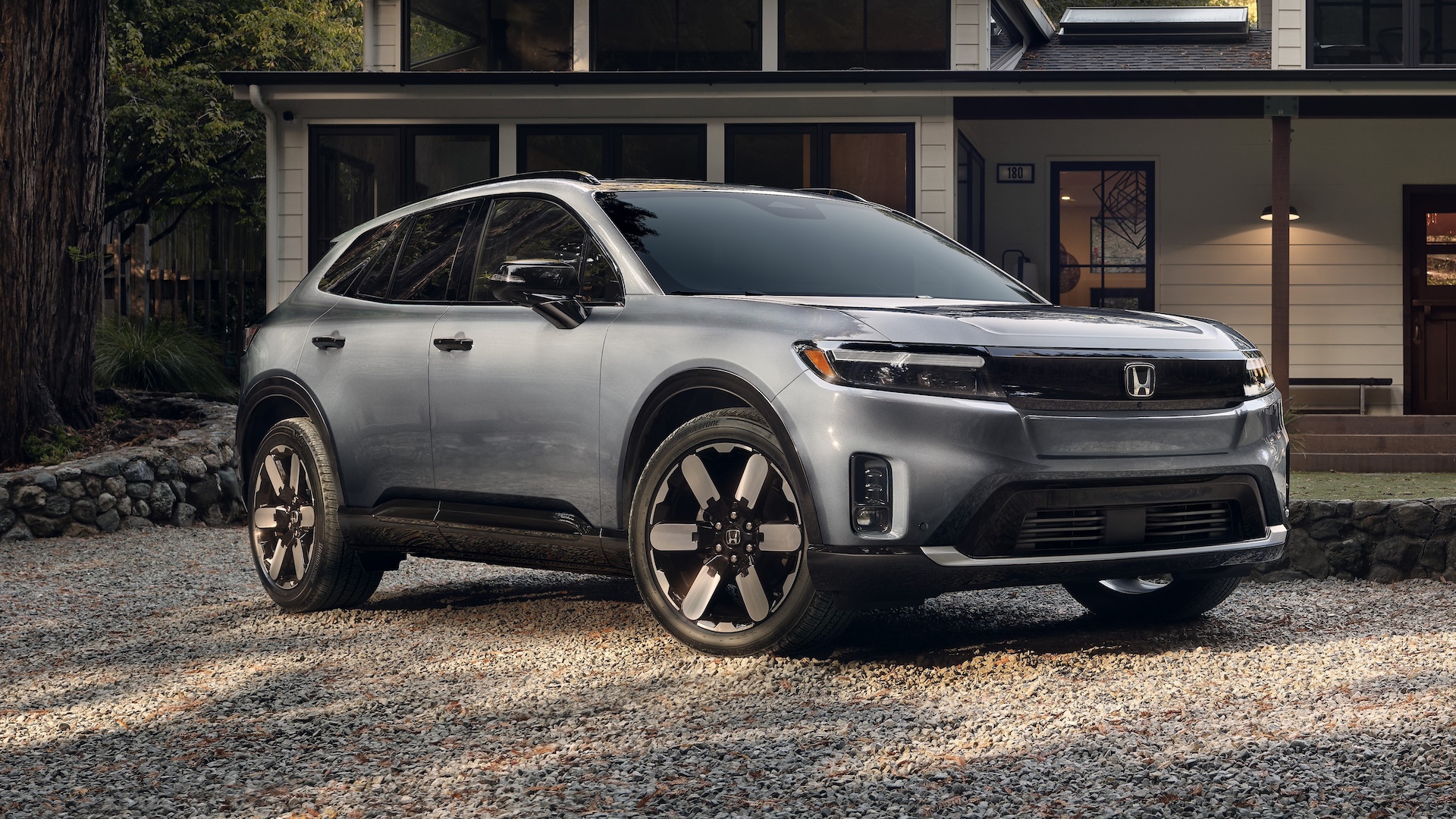

Things can change rapidly in the automotive industry. At this time last year—and not to mention two years ago—foreign and domestic automakers were bullish on EVs. Everything pointed to a mostly electric future within a decade, with everything from crossovers to pickup trucks switching to battery power. Today, however, things are different.
Ford announced Wednesday that it’s axing its plans for an electric three-row crossover, as well as the next-generation Lightning pickup. New EVs are leasing for record-low prices, and used ones have dropped in value considerably. The reason for this? Well, it’s complicated, but if you ask Honda’s top executives, the biggest area of concern is the EV ecosystem.
Speaking to a group of journalists during Monterey Car Week, President and CEO of American Honda Kazuhiro Takizawa and Honda’s global executive vice president Shinji Aoyama explained that while EV adoption is “steadily increasing,” the downturn of the EV market is tied to a weak EV infrastructure. And regardless of how many corporate or government incentives EVs get, customers won’t switch if the ecosystem isn’t there.
“You can’t force the customer to change their mind, really, and to some degree [you can incentivize] them but we just can’t force the people living in, say, the midwest, with no charging stations,” said Takizawa. “Even with incentives they will not change from ICE to BEV. I believe it will be very difficult to force people to go for it. We need to prepare the ecosystem gradually and let them migrate little by little.
“It’s changing. We’re closely monitoring the number of [new] charging guns per electric vehicle so it’s not a very rapid growth, but gradually and steadily it is increasing,” added Takizawa.
This sentiment has been shared from the retail side—not the automaker—most recently by auto dealer giant Rick Hendrick. “You can’t force customers to buy what they don’t want,” said Hendrick back in March, adding that the “EV market will be there one day, but we’re not ready for it.”

Honda executives were present in Monterey for the unveiling of two new Acura products, one completely different from the other. One was the Acura Performance EV Concept, which sets the stage for the brand’s upcoming electric vehicles. The other was the Integra Type S HRC Prototype, which teased a new line of performance parts for performance ICE vehicles.
The company’s top man on electrification and strategy also shared his thoughts on the EV downturn, adding that Honda expects that it will take time and many steps for mass EV adoption in the U.S. He also explained that the more EVs there are on the road, the more rapidly the ecosystem will adapt, something that’ll be a major societal change given how long the ICE ecosystem has been in place.
“The slowing down of the EV market is not unexpected because the more EVs are running on the road, the more rapid the change of the entire ecosystem for EVs,” said Aoyama. “It’s not a question of ICE or EVs but of the change of ecosystem as penetration of EVs increases. The [already established] ICE ecosystem starts with petroleum mining, refining, gas stations, and ICE cars. Meanwhile, EVs have totally different ecosystems, so it’s a question of an entire societal change and societal issues so it may take time to change.
“Battery EVs are the most effective to reach carbon neutrality, so we will keep our long-term view and we expect that this ecosystem will change step by step,” he added.
Got a tip? Email us at tips@thedrive.com